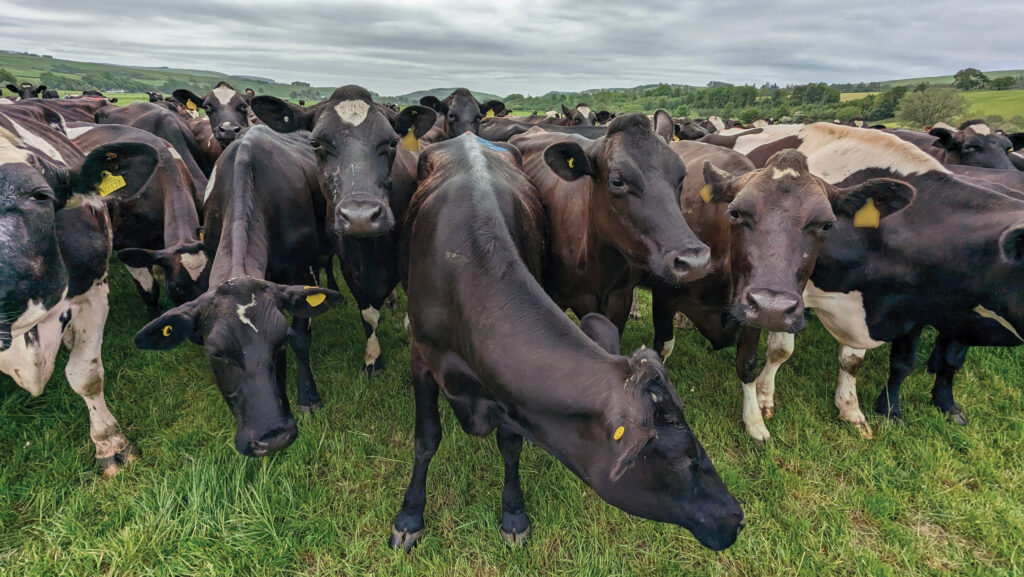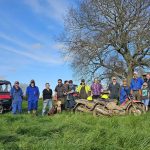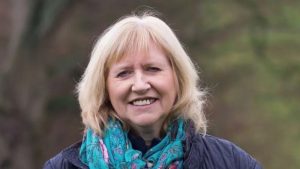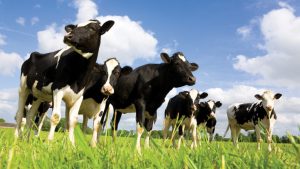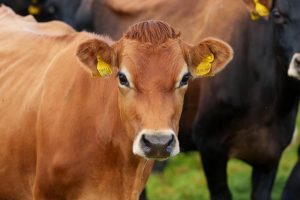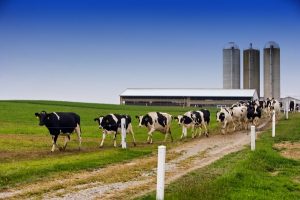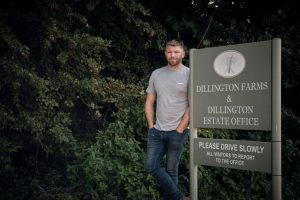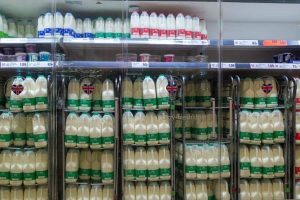
Passionate and progressive young people have driven the expansion of a farming business based around replicating large, profitable spring block-calving systems, with production from grazed grass.
Farming Partners, based near Dumfries, south-west Scotland, has grown from a 300-cow herd to nine dairy farms, ranging in size from 330 to 700 cows, plus a youngstock rearing unit serving three of the herds.
Some 30 full-time staff and 12-15 temporary staff are employed for calving.
The business model was started in 2011 by Brendan and Maureen Muldowney, in partnership with Richard Beatty.
It connects farm owners (who want to bring in outside labour, cows, capital and expertise) with young people (without a family farm or capital to buy their own).
The latter are helped to develop their skills so they can eventually manage the farms, invest in cows and enjoy a profit share.
Simple system
“We won’t take on just any farm – it needs to suit the spring block-calving system for profitable milk production and simplicity,” says Maureen, who heads up the people side of the business.
She explains that organic growth in the early years was fuelled by some of their original staff.
“We had two people who were chomping at the bit to run farms themselves, so that was the big push. Coupled with Brendan and Richard’s ambition to grow, we looked at taking on more farms.”
Further progress came when the Muldowneys used their banking experience (gained prior to returning to farming) to help their employees learn to set budgets and work out borrowings.
They began rewarding good staff with the opportunity to have a share of the business through cow ownership.
These days, business growth is planned – though it depends “who is pushing it along”, adds Maureen.
“We don’t want to add farms but have no one to run them. We are very focused on our people now, they are key to everything and we want to keep the good ones.”
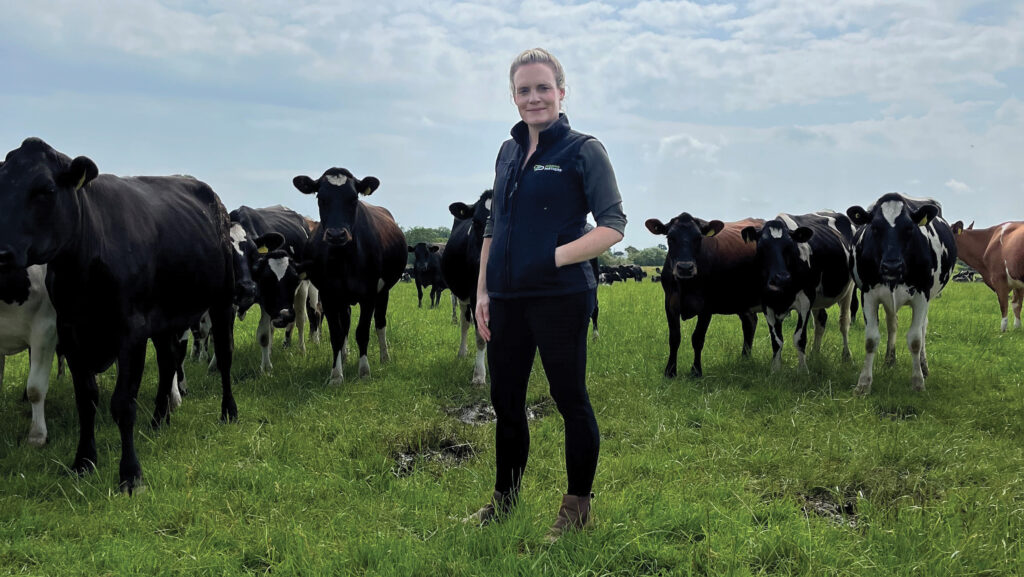
Maureen Muldowney © Farming Partners
The employee and shareholder
Coming from a small dairy farm in County Wexford, Ted Dempsey always knew the home farm would not have room for him and set his sights on going overseas after college.
However, while planning a trip to New Zealand, he was offered an opportunity to return to one of his college placement farms.
Ted thought he might earn some money for his trip, at Farming Partners based near Dumfries, but one opportunity led to another and he did not leave.
Eight years later, he is managing a 400-cow crossbred herd at the business’s Shawsholm Farm, owning 80 of the 6,000-litre cows – and has been to New Zealand on a study tour holiday.
People are important
“I liked Farming Partners because it was a growing business and exciting.
“Although it was in its infancy, they had a clear vision of expanding and it wasn’t just to 1,000 cows or X number of acres – although they are important drivers.
“It was that the people who were doing it were very important to the business owners,” Ted says.
He could see the business was investing in two of its employees, stepping them up to management roles, as well as establishing a structure for people to progress in the business.
“Even as a student, I had the financials explained to me in a way I could understand at the time. It was informal, but it was their culture.”
Ted says from day one, he was constantly developing his practical skills with courses on quad bike training, foot-trimming and grassland management, then learning about people management.
He progressed from working in one of the 700-cow herds to establishing the youngstock unit, which now rears 600 calves a year.
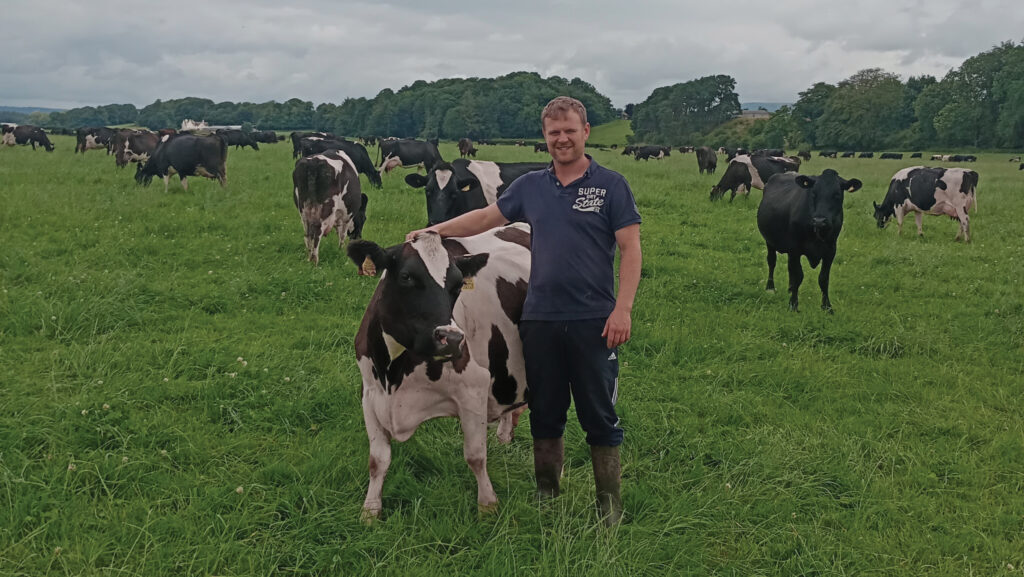
Ted Dempsey © Oisin McEntee
Cow ownership
His next move was to become farm manager at Shawsholm. “I was paid a salary, then with savings I borrowed money to buy 40 cows in the herd, and a year later another 40 cows,” he says.
Ted now earns a profit share based on his cow ownership, and next year, hopes to become both a manager and investor in a new farm in the pipeline for 2025.
“I’d like to continue to grow my equity within the business and achieve a level of financial freedom through dairy farming, doing what I love.”
His training has given him insight into his own personality style and how best to interact with others. “Organisation is the key – people like to know what they are doing, so rotas and plans are important,” he says.
And, as a manager, he finds the business has a good structure for reviewing and developing people, which helps with addressing any issues that may crop up without them being big problems.
“It’s a skill you don’t pick up at home [the family farm].
“Managing people is the new frontier. Our aim is to develop people.”
Focus on good people
During her banking career, Maureen had a thorough training in people skills, from how to conduct reviews and interviews, to training people and the best ways to give feedback.
Using this to formalise a structure to identify, employ and train the right people for their farms, she has created a development programme that includes training and reviews.
“We have job specs for all different levels, and full-time staff have reviews every six months – out of it comes their tailored training plan based around the job role and skill set required.
“We don’t set a financial budget for training, it’s more about the person’s needs and what they are willing to do and buy into,” she explains.
“If people request something like body condition scoring, when there is a skill gap, we will do it if they are keen for it. Yes, it means we pay out financially. But we get more from it long term – it’s a win-win situation.”
Training courses
Because of its scale, the business can run courses on its own farms and fill them at different levels, from basic to experienced.
Technical skills such as first aid, quad bike training, foot-trimming, CowSignals training and grassland management are all covered.
However, there is also training on the softer skills of people management for those stepping up a level and, following feedback from farm managers, Maureen is introducing a one-day mental health awareness workshop this year.
Like most of the industry, Maureen says it is a struggle to recruit good staff and usually finds the best way is through word of mouth.
She adds that they have developed an instinct for spotting good people, and are pleased that their managers are now developing this skill.
The starting point is always whether someone will get on with the rest of the team.
Attitude is important
“We don’t just want to fill a position; it doesn’t matter if someone lacks experience, it’s their attitude we are interested in,” Maureen stresses.
“Age is no barrier: we hire from different age brackets – older people have learned and developed over the years. If someone fits into our system and are passionate about it, we are interested in them.”
The farm owner
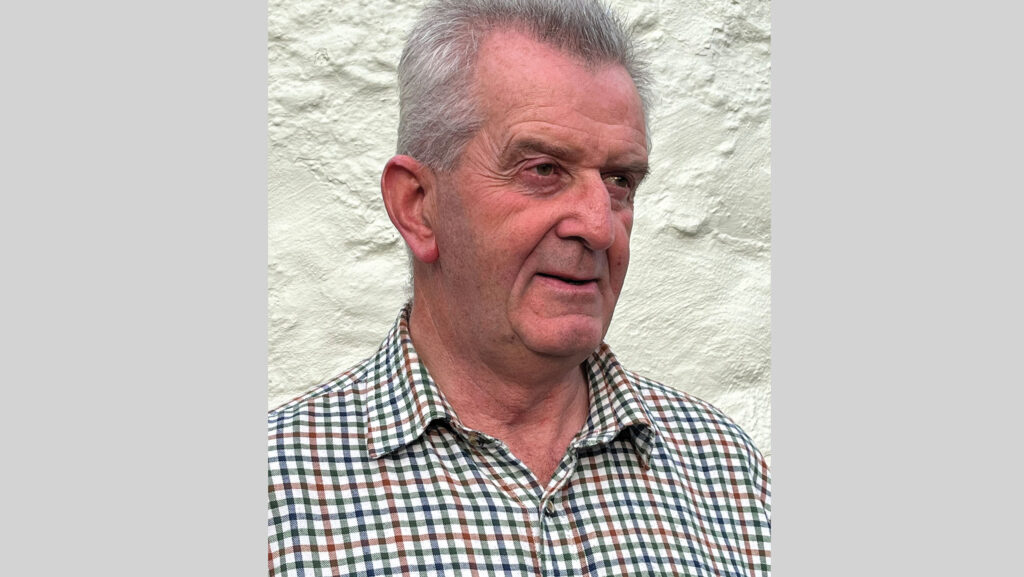
John Mackie © John Mackie
As a former dairy farmer turned contract heifer rearer, John Mackie was keen to find a way back into milk production.
Working with Farming Partners has allowed him to keep farming, while meeting personal and financial objectives, he says.
At retirement age, he thought it was a bit late for him to start from scratch after 15 years of rearing 600 youngstock a year, even though he had maintained his farm.
So the idea of a system where the cows and staff were supplied appealed.
After discussing terms for about 18 months, John’s farm joined the business in January 2022.
It now operates 500 crossbred cows producing 2.8m litres a year, calving in February and March, and is managed by a team of four staff.
John invested in a new 44/88 swingover parlour, reseeded 160ha (395 acres) for grazing and installed paddock infrastructure such as tracks, fencing and troughs.
The farm already had 600 cubicles and sufficient muck storage:
“One of the attractions [of this venture] was that is wasn’t that expensive a change, we were well covered, but I added a new lagoon to future-proof,” he says.
While he has not returned to milking, John takes part in the monthly management meetings and has daily discussions with staff.
“I enjoy the numbers side of farming and so I enjoy the regular monthly reports.
The young team brings a lot of energy and enthusiasm to the business, and I’m keen to see them developing their skills.”
For more information on Farming Partners, visit farmingpartners.co.uk/our-story
You can now read the most important #news on #eDairyNews #Whatsapp channels!!!
🇺🇸 eDairy News INGLÊS: https://whatsapp.com/channel/0029VaKsjzGDTkJyIN6hcP1K
